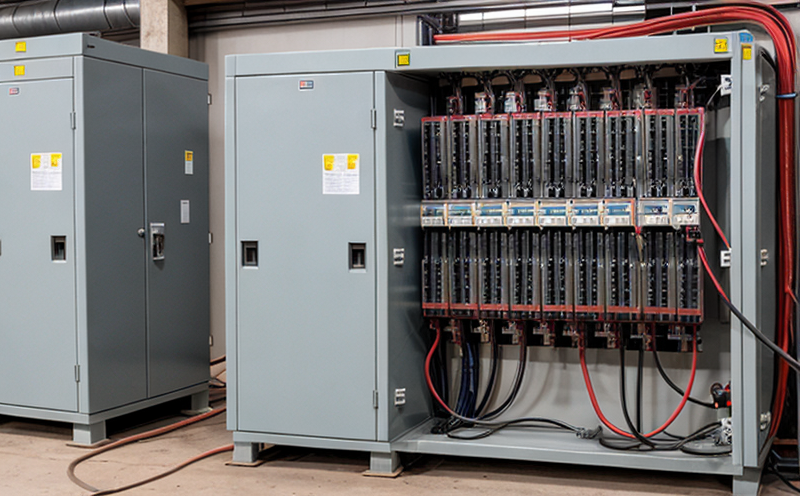Transformer & Switchgear Testing
The integrity and performance of power transformers and switchgears are paramount to the reliability and safety of electrical systems in the Power & Utilities sector. This comprehensive testing ensures adherence to international standards such as IEEE C57, IEC 60076, and ASTM D1149, which are critical for ensuring that equipment operates safely under various conditions.
Our services encompass a wide range of tests tailored to meet the specific needs of transformers and switchgears. These include but are not limited to insulation resistance testing, partial discharge detection, bushing capacitance measurement, and high voltage withstand tests. Each test is designed to identify potential weaknesses or defects early in the lifecycle of these critical components.
For transformers, we also conduct short-circuit impedance measurements, winding deformation analysis using eddy current methods, and harmonic content analysis. These tests are essential for understanding how a transformer will behave under real-world conditions, including those that may result from voltage fluctuations or load imbalances.
Switchgear testing is equally critical, focusing on interrupting capacity verification, mechanical integrity checks, and arc resistance assessment. Ensuring switchgears can safely handle the required fault currents is crucial for preventing cascading failures in electrical networks.
The results of these tests are not only used to identify immediate issues but also to guide ongoing maintenance strategies and inform design improvements for future equipment. By adhering to rigorous testing protocols, we ensure that our clients' assets meet or exceed regulatory requirements while enhancing overall system reliability.
Scope and Methodology
| Test Type | Description |
|---|---|
| Insulation Resistance Testing | Determines the electrical resistance of insulation to identify potential degradation. |
| Partial Discharge Detection | Identifies early signs of insulation breakdown due to localized electric field stress. |
| Bushing Capacitance Measurement | Makes sure the bushing capacitance is within acceptable limits for safe operation. |
| High Voltage Withstand Tests | Evaluates the equipment's ability to withstand overvoltages without failure. |
| Short-Circuit Impedance Measurement | Determines the impedance under short-circuit conditions for transformers. |
| Winding Deformation Analysis | Uses eddy current methods to assess the structural integrity of windings. |
| HVAC Testing (for Switchgears) | Evaluates the switchgear's performance under high voltage and current conditions. |
Benefits
- Identification of potential defects early in the lifecycle, reducing costly repairs or replacements.
- Enhanced reliability and safety of electrical systems through thorough testing protocols.
- Compliance with international standards such as IEEE C57, IEC 60076, and ASTM D1149.
- Prioritization of maintenance strategies based on test results for optimal asset management.
- Reduction in the risk of unplanned outages by ensuring equipment operates under expected conditions.
Environmental and Sustainability Contributions
- Reduces waste associated with premature failures of transformers and switchgears by identifying issues early.
- Promotes the use of energy-efficient equipment through rigorous testing, contributing to lower operational costs and reduced carbon footprint.
- Supports sustainable infrastructure development in Power & Utilities by ensuring long-term reliability and efficiency of electrical systems.





